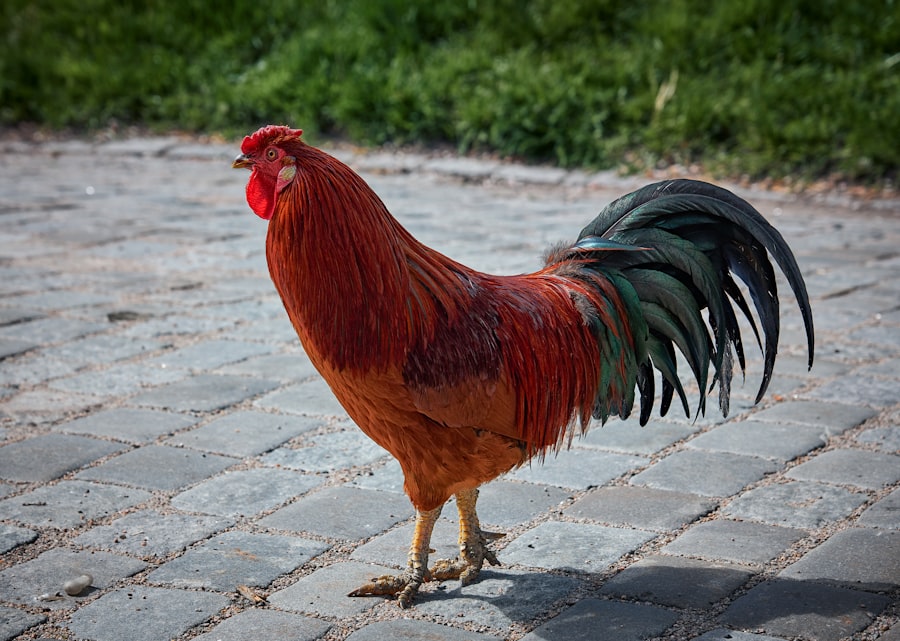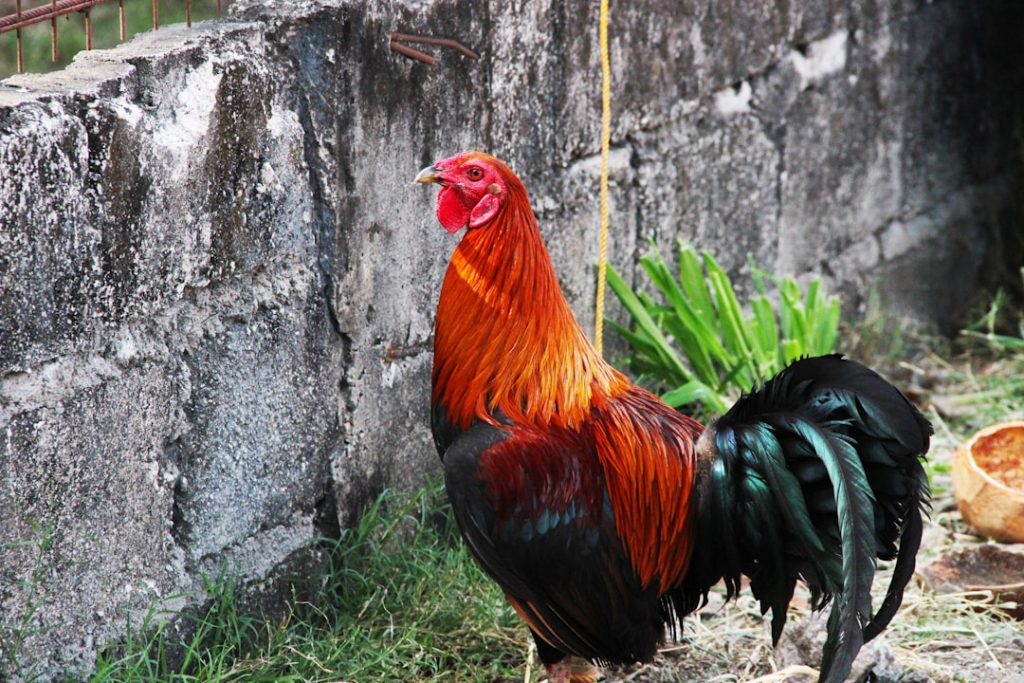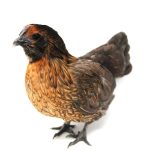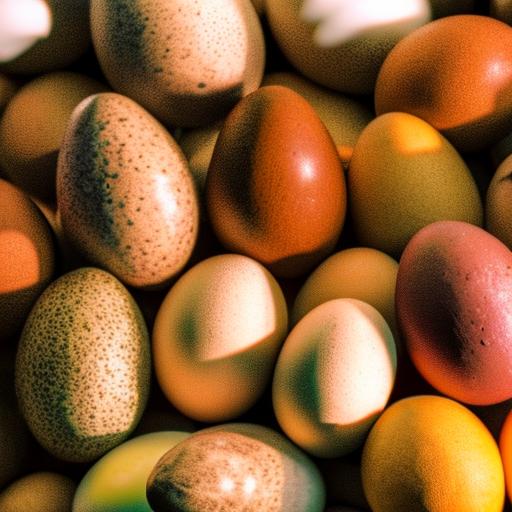Heritage chicken breeds are traditional varieties that have been cultivated by farmers for many generations. These breeds are characterized by their resilience, foraging capabilities, and strong maternal instincts. They are also prized for their distinctive features, including diverse feather colorations, comb variations, and egg hues.
Unlike modern commercial breeds, heritage chickens have not undergone intensive selective breeding for specific traits such as rapid growth or maximized egg production. Instead, they have evolved naturally over time, resulting in a wide array of breeds with unique characteristics and qualities. Heritage chickens are commonly raised for both meat and egg production, as well as for their aesthetic appeal.
Many of these breeds are well-adapted to free-range and pasture-based environments, making them ideal for small-scale and sustainable farming practices. In recent years, there has been an increased focus on conserving and promoting heritage breeds as a means of maintaining genetic diversity and supporting sustainable agricultural practices.
Table of Contents
Key Takeaways
- Heritage breeds of chickens are traditional breeds that have been raised for generations and are known for their hardiness, adaptability, and unique characteristics.
- Preserving heritage breeds is important for maintaining genetic diversity, promoting sustainable agriculture, and preserving cultural heritage.
- Different heritage chicken breeds have distinct characteristics such as egg color, feather patterns, and temperament, making them valuable for small-scale farming and homesteading.
- Challenges in raising heritage breeds include lower egg production, slower growth rates, and the need for specialized care and management compared to commercial breeds.
- Raising heritage breeds offers benefits such as superior flavor, adaptability to diverse environments, and the satisfaction of preserving rare and unique breeds.
- Supporting heritage breeds can be done through purchasing products from small-scale farmers, joining breed conservation organizations, and advocating for policies that promote genetic diversity in agriculture.
- In conclusion, the future of heritage chicken breeds depends on the efforts of farmers, consumers, and policymakers to recognize their value and prioritize their preservation for future generations.
The Importance of Preserving Heritage Breeds
Genetic Resource and Sustainability
These breeds represent a valuable genetic resource that can help ensure the long-term sustainability of poultry production. By maintaining a diverse gene pool, heritage breeds can contribute to the development of new breeds with improved traits, such as disease resistance and adaptability to different environments.
Cultural Significance and Traditional Practices
Heritage breeds also play an important role in preserving cultural heritage and traditional farming practices. Many of these breeds have been raised by farmers for centuries and are deeply rooted in local agricultural traditions. By preserving these breeds, we can help maintain the cultural identity of rural communities and support the continuation of traditional farming methods.
Culinary Heritage and Unique Characteristics
Furthermore, heritage breeds often have unique characteristics and flavors that are prized by consumers, making them an important part of culinary heritage as well.
Characteristics of Different Heritage Chicken Breeds

There are many different heritage chicken breeds, each with its own distinct characteristics and qualities. Some popular heritage breeds include the Plymouth Rock, Rhode Island Red, Sussex, Orpington, and Wyandotte. These breeds come in a variety of colors and patterns, with different comb types and feather textures.
For example, the Plymouth Rock is known for its black and white striped feathers and single comb, while the Orpington is prized for its fluffy plumage and gentle disposition. In addition to their appearance, heritage breeds also vary in terms of their egg-laying abilities, meat quality, and temperament. For example, the Rhode Island Red is known for its excellent egg production, while the Sussex is valued for its flavorful meat.
Some breeds are also known for their ability to thrive in specific climates or environments, making them well-suited for different regions and farming systems. Overall, heritage chicken breeds offer a wide range of options for farmers and homesteaders looking to raise poultry with unique characteristics and qualities.
Challenges in Raising Heritage Breeds
While heritage breeds offer many benefits, there are also some challenges associated with raising these traditional chickens. One of the main challenges is the limited availability of heritage breed chicks and hatching eggs. Unlike commercial breeds, which are widely available from hatcheries and suppliers, heritage breeds can be more difficult to find.
This can make it challenging for farmers and homesteaders to start or expand their flocks with heritage breeds. Another challenge is the slower growth rate and lower egg production of some heritage breeds compared to commercial hybrids. This can make it less economically viable to raise heritage breeds for meat or eggs on a large scale.
Additionally, some heritage breeds may be more susceptible to certain diseases or environmental stressors, requiring careful management and attention to ensure their health and well-being.
Benefits of Raising Heritage Breeds
Despite the challenges, there are many benefits to raising heritage chicken breeds. One of the main benefits is the unique flavors and qualities of their meat and eggs. Many consumers prefer the taste and texture of heritage breed meat and eggs, which can command higher prices in niche markets such as farm-to-table restaurants and farmers’ markets.
Additionally, heritage breeds are often raised in more natural and sustainable farming systems, such as free-range and pasture-based operations, which can result in higher quality products. Another benefit of raising heritage breeds is their adaptability to diverse environments and management systems. These breeds have evolved over generations to thrive in a wide range of conditions, making them well-suited for small-scale and diversified farming operations.
Their hardiness and ability to forage can also reduce the need for supplemental feed and inputs, making them a cost-effective option for sustainable agriculture.
How to Support Heritage Breeds

Raising Heritage Breeds
Individuals can support the preservation and promotion of heritage chicken breeds by raising them on their own farms or homesteads. This not only helps maintain genetic diversity and cultural heritage but also allows individuals to enjoy the unique qualities of these traditional chickens.
Supporting Reputable Breeders
By purchasing heritage breed chicks or hatching eggs from reputable breeders and hatcheries, individuals can contribute to the conservation of these valuable genetic resources.
Advocating for Heritage Breeds
Another way to support heritage breeds is to advocate for policies and programs that promote their conservation and sustainable use. This can include supporting initiatives that provide funding for research on heritage breed genetics and breeding programs, as well as educational outreach efforts to raise awareness about the value of these traditional chickens.
Supporting Local Farmers and Businesses
Consumers can also support local farmers and businesses that raise heritage breed chickens by purchasing their products and spreading the word about the importance of preserving these unique breeds.
The Future of Heritage Chicken Breeds
In conclusion, heritage chicken breeds play a vital role in maintaining genetic diversity, cultural heritage, and sustainable agriculture. These traditional chickens offer a wide range of unique characteristics and qualities that make them valuable assets for farmers, homesteaders, and consumers alike. While there are challenges associated with raising heritage breeds, there are also many benefits to preserving these traditional chickens and supporting their conservation.
As interest in sustainable agriculture and local food systems continues to grow, there is an opportunity to promote the conservation and promotion of heritage chicken breeds. By raising awareness about the value of these traditional chickens and supporting initiatives that promote their conservation, we can help ensure that future generations have access to diverse and resilient poultry populations. With continued efforts to preserve genetic diversity and cultural heritage, the future looks bright for heritage chicken breeds in sustainable agriculture.
If you’re interested in learning more about heritage breeds of chickens, you might also want to check out this article on how many chickens you need for a family of 4. Understanding the different breeds and their egg-laying capabilities can help you determine the right number of chickens to keep for your family’s needs.
FAQs
What are heritage breeds of chickens?
Heritage breeds of chickens are traditional breeds that have been raised by farmers for generations. These breeds are known for their hardiness, ability to forage, and often have unique characteristics and traits.
What makes a chicken breed a heritage breed?
Heritage breeds are typically defined as breeds that were established prior to the mid-20th century, before the rise of industrial agriculture. They are also known for their ability to mate naturally, have a long and productive outdoor lifespan, and have a slow growth rate.
What are some examples of heritage breeds of chickens?
Some examples of heritage breeds of chickens include the Plymouth Rock, Rhode Island Red, Sussex, Orpington, and Wyandotte. These breeds are known for their unique plumage, egg-laying abilities, and foraging skills.
Why are heritage breeds of chickens important?
Heritage breeds of chickens are important for preserving genetic diversity in poultry, as well as for maintaining traits that are well-suited to small-scale and sustainable farming practices. They also contribute to the preservation of cultural and agricultural heritage.
Where can I find heritage breeds of chickens?
Heritage breeds of chickens can often be found through specialty breeders, hatcheries, and conservation organizations that focus on preserving rare and endangered breeds. It’s important to seek out reputable sources to ensure the birds are true to their heritage breed standards.
Meet Walter, the feathered-friend fanatic of Florida! Nestled in the sunshine state, Walter struts through life with his feathered companions, clucking his way to happiness. With a coop that’s fancier than a five-star hotel, he’s the Don Juan of the chicken world. When he’s not teaching his hens to do the cha-cha, you’ll find him in a heated debate with his prized rooster, Sir Clucks-a-Lot. Walter’s poultry passion is no yolk; he’s the sunny-side-up guy you never knew you needed in your flock of friends!







